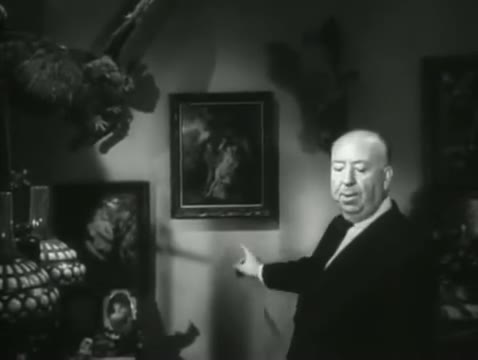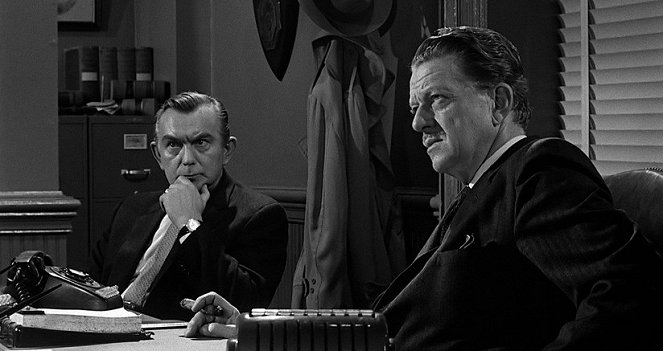Directed by:
Alfred HitchcockScreenplay:
Joseph StefanoCinematography:
John L. RussellComposer:
Bernard HerrmannCast:
Anthony Perkins, Vera Miles, John Gavin, Janet Leigh, Martin Balsam, John McIntire, Simon Oakland, Frank Albertson, Patricia Hitchcock, Vaughn Taylor (more)VOD (4)
Plots(1)
Alfred Hitchcock directs this Oscar-nominated thriller starring Janet Leigh and Anthony Perkins. Marion Crane (Leigh) goes on the run after stealing $40,000 from one of her employer's clients. Taking a wrong turn in a storm, she arrives at the isolated Bates Motel, run by the twitchy Norman (Perkins), who is constantly at the beck and call of his unseen mother. When Marion takes a shower in her room, a sudden knife attack brings her life to an end. Upon discovering her body Norman covers up the murder, but it is not long before Marion's sister and boyfriend are attempting to track her down. (Universal Pictures UK)
(more)Videos (3)
Reviews (9)
I'll preface this with the fact that it's a better 3 stars. Where this movie wins is the music. I watched it in the cinema, with my classmates around me, and quite a few of them flinched in horror at the murder of the private eye. But that's mostly because of the music. Unfortunately, it didn’t fire me up, which is definitely a shame. And the other problem was that it was clear to me almost from the beginning what the ending was going to be. But I think this film belongs in the "must-see" column, so I don't regret going to see it at all as part of Project 100. But the last scene (before the credits jump in), that was really awesome.
()
Alfred Hitchcock is a master at creating a dark atmosphere, the constant rain, black and white composition, the old house, and a few shots of a heavily clouded sky literally predicts evil, accompanied by brilliant music. Overall, this film was revolutionary for its time and something unseen. Today? The power and shock have somewhat diminished, times are changing after all, but even after all these years, this film still has something special.
()
When I saw Psycho in a packed cinema, it evoked more laughter than horror. It wasn't laughter of relief in response to something shocking, but in response to some now unintentionally funny dialogue and situations towards the end of the film. Times change and what worked 40 or more years ago doesn't have the same power today. I appreciate Hitchcock's great surprise for the uninitiated (the famous shower scene and its completely unexpected consequence) and the shocking twist. The black-and-white cinematography is also excellent, and the realities of where the film takes place are impressive. But overall, Hitchcock's most famous film didn't leave a deep mark on me. Just because it was made by the great Master himself, I won't waste a full rating. From a historical point of view, five stars. From a purely subjective point of view and overall emotional experience, a decent four stars.
()
Hitchcock was a peculiar and unique personality, the likes of which will probably never be born again. His Psycho is an example of perfect symbiosis between direction, cinematography and music, which leaves such a strong and deep impression that the viewer is forced to replay the story over and over again long after its end. And what comes to mind is perhaps not even necessary to repeat. Firstly, the chilling and disturbing atmosphere that stretches across the frame like a morning mist over a calm pond. Secondly, Bernard Herrmann's legendary score, which perhaps couldn't have been better and is the main reason why the famous bathroom scene is still considered a symbol of flawless horror. And finally, the truly insane Anthony Perkins and the aforementioned cinematography, thanks to which even the sight of a lonely dark house causes unpleasant chills. Yet, I hesitate to give a full rating. The ravages of time have taken their toll and Hitchcock's signature, however admirable and refined, will never represent my ideal, not only in film, but in horror as well.
()
It’s misguided to rate Psycho as a representative of any genre or as a film that scared the viewer on the scale of a few stars. Psycho deserves to be judged as a demonstration of the possibilities of the art of filmmaking and as a showcase of Alfred Hitchcock’s brilliant creativity. And by taking this path, it’s possible to come to only one conclusion – Psycho is not a film; it is a super-film. First there’s that, and then there are films that can rated with some stars according to how well made they are. ___ Let’s imagine that a painter’s brush has X possibilities of movement, angle of approach to the canvas and intensity of contact with the canvas. Now let’s apply that principle of possibilities to film directing and working with film techniques and with the viewer. Hitchcock harnessed these X possibilities that other filmmakers had been working with, juggled them and created a new palette of XYZ possibilities. Filmmaking is a science. When will there ever be a greater filmmaking innovator that Hitchcock was?
()



Ads